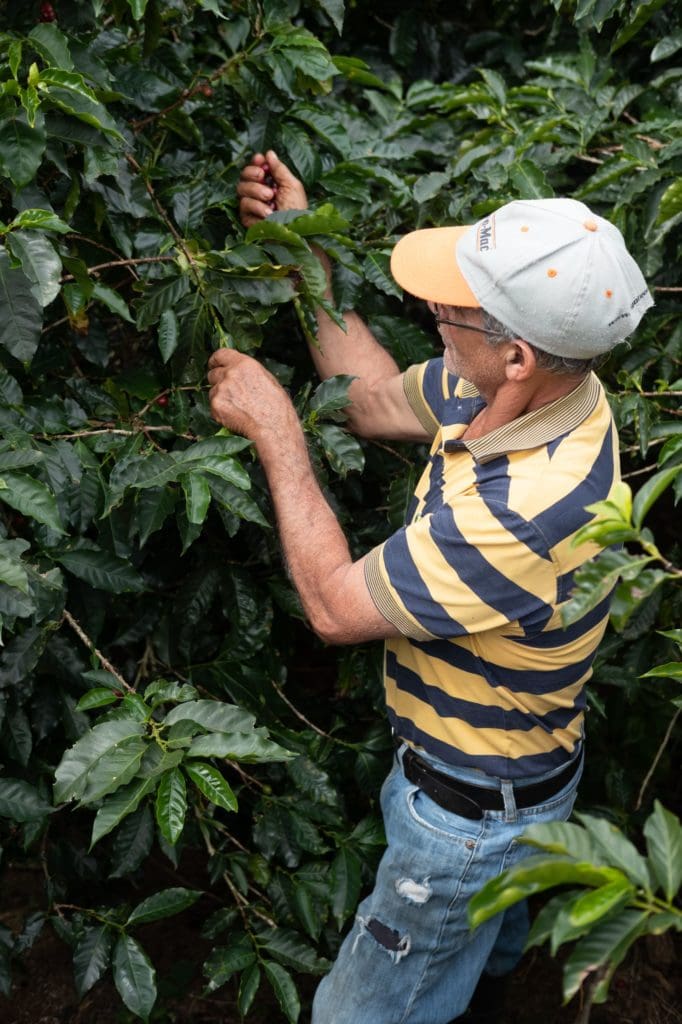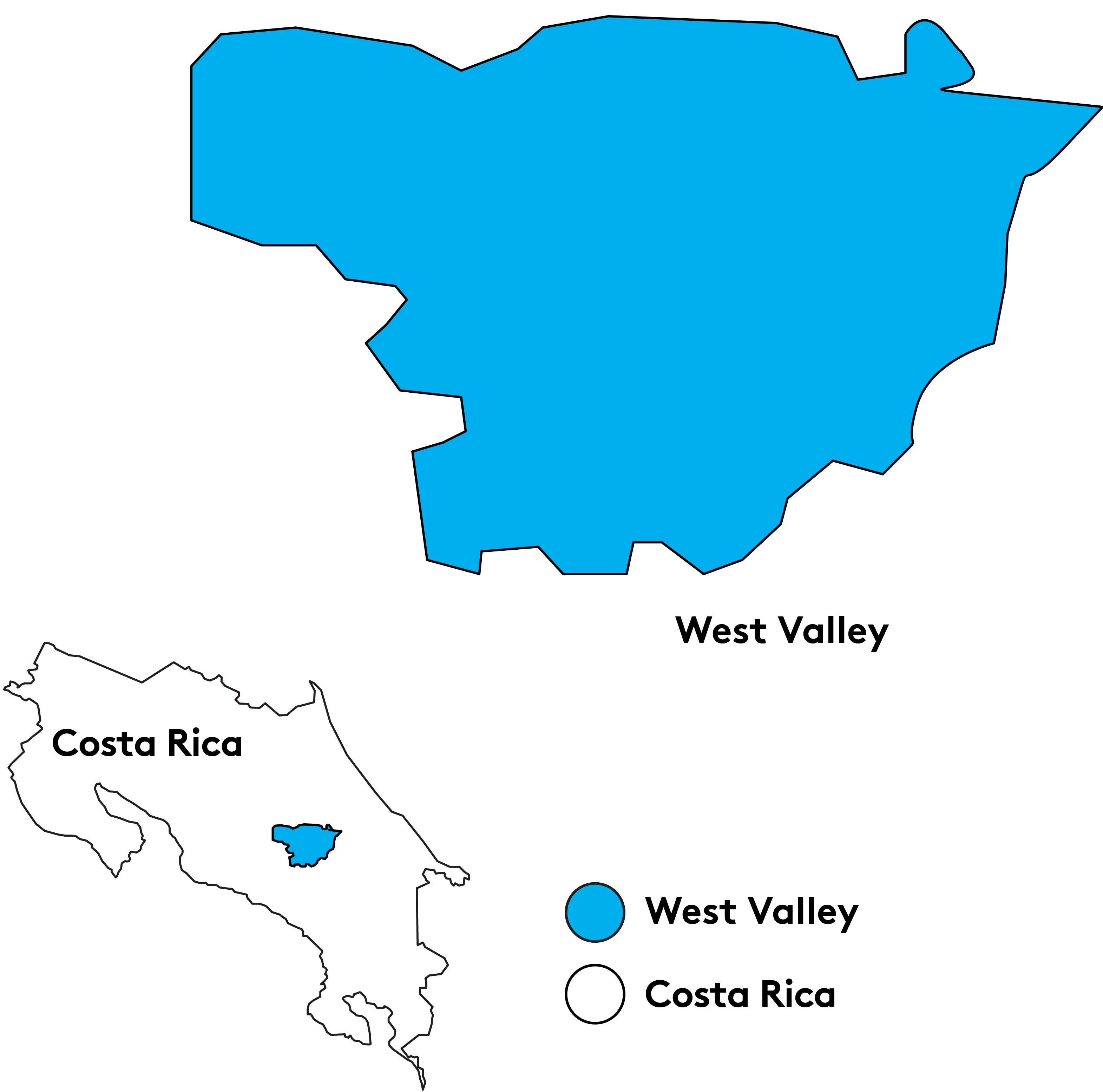The Duran family farm is in the village of Sarchí in the West Valley. Eduardo works the farm with his three sons; Barney is actively involved in coffee processing and production on the farm and Kendall and Arnold work as software engineers. They all show great passion for coffee and to continue the work their father has been doing for decades.
All three brothers spent most of their school holidays working in the field either picking, stumping, or planting trees. The Durans recognize that, today, in addition to carrying on traditions, one must be innovative in coffee production. Kendall is working hard with his brothers to help bring their coffee to better markets.
The farms consist of different plots of land, each between two and three hectares. The lowest plot, Santa Teresa, is 1100 meters above sea level and grows healthy Sarchimor trees and an F1 hybrid variety, a cross between an Ethiopian landrace and Sarchimor known as H1 Centroamericano. The El Roble parcel ranges from 1300 meters to up to 1650 meters and grows different varieties such as Catuaí and Caturra as well as other new hybrids such as H3, and H17. These hybrids can have great results in production levels and in the cup while being more resistant to disease and fungi.
Over the past year, Eduardo and Kendall have been building a micromill on the small coffee plot behind their house, which is a labor intensive process. The Duran family opted for a traditional depulper instead of a high-end mechanical demucilager that scrubs all the mucilage off coffee using friction. Not only does this save a lot of money, it also helps to create more unique profiles in the cup. The new mill also has more space to accommodate the drying process, including a greenhouse with drying beds to keep up with the increasing production of microlots.
This lot of Black Honey was dried on raised beds for 21 days.
More about F1 hybrids in Costa Rica.





